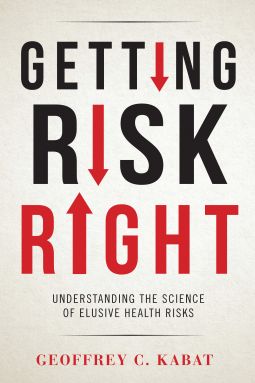
Getting Risk Right
Understanding the Science of Elusive Health Risks
by Geoffrey C. Kabat
This title was previously available on NetGalley and is now archived.
Send NetGalley books directly to your Kindle or Kindle app
1
To read on a Kindle or Kindle app, please add kindle@netgalley.com as an approved email address to receive files in your Amazon account. Click here for step-by-step instructions.
2
Also find your Kindle email address within your Amazon account, and enter it here.
Pub Date Nov 22 2016 | Archive Date Jan 22 2017
Description
Do cell phones cause brain cancer? Does BPA threaten our health? How safe are certain dietary supplements, especially those containing exotic herbs or small amounts of toxic substances? What role does the HPV virus play in the development of cervical cancer, and is the HPV vaccine safe? In four detailed case studies, Geoffrey C. Kabat shows how science works... and sometimes doesn't, and what distinguishes these two very different outcomes. We depend on science and medicine as never before, yet there is widespread misinformation and confusion, amplified by the media, regarding what influences our health.
Kabat's goal in Getting Risk Right is to enable the general reader to distinguish between claims that are supported by solid science and those that are the result of poorly-designed or misinterpreted studies. By exploring different examples, he shows us why certain risks are worth worrying about, while others are not. Attempts to explain anti-science attitudes often focus on irrational fears and beliefs and on the powerful role of business interests. While these factors matter, Kabat emphasizes the variable quality of research in contested areas of health risks and the professional, political, and methodological factors that can distort the research process. Drawing on recent work in the "meta-analysis" of biomedical research and on insights from leading thinkers including John Ioannides, Daniel Kahneman, and Cass Sunstein, this groundbreaking work examines factors both internal and external to the science that can influence what results get attention and how questionable results can be used to support a particular narrative concerning an alleged public health threat. Kabat, a leading public health thinker, provides a much-needed antidote to what has been called "an epidemic of false claims."
Available Editions
| EDITION | Hardcover |
| ISBN | 9780231166461 |
| PRICE | $35.00 (USD) |




